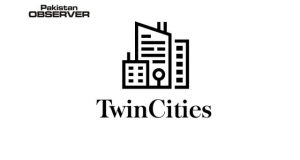Renowned Economist of Pakistan and Vice Chan-cellor of the Pakistan Institute of Development Eco-nomics (PIDE), Dr.
Nadeem ul Haque has said that PIDE launched a multi-year competitive grants program for policy-oriented research in Pakistan titled ‘Research for Social Transformation and Advancement’ (RASTA) in October last year with the mission to develop local thought communities and establish a research network of academia and think tanks across Pakistan producing high-quality, evidence-based policy research to inform Pakistan’s public policy process.
Talking to a group of journalists here on Sunday, he said that one of the objectives of the RASTA pro-gram is to put the Pakistani researcher to serious work on the economy and key public policy issues to accelerate our economic growth and develop-ment, improve our society, and achieve the promise of Pakistan.
Dr.Nadeem ul Haque said that for too long, the public policymaking in Pakistan has surrendered thought leadership to donors.
It is high time to con-duct some meaningful research, inform decision-making, and help formulate indigenous policies instead of relying on sub-standard donor advice.
RASTA provides the opportunity to reduce the re-search-policy gap by providing answers and evi-dence that can contribute to improving the policy and policy-making process in Pakistan.
He further stated that it is important to understand what type of research would be more meaningful.
It has been observed that people are used to acquiring hard data, conducting regression analysis, and pre-senting some generic results, which are not always sufficient to inform public policy.
In RASTA, we want applicants to conduct policy-oriented research that should not only find solutions to policy prob-lems but also help to improve better practices and interventions by informing organizations, policy-makers, and decision-makers with pragmatic, ac-tion-oriented recommendations.
In this context, we want applicants to focus on real policy issues and questions, build their research argument keeping in view pressing challenges facing Pakistan, and use analyses as well as data to inform the people and policymakers of Pakistan.
“We would encourage applicants to study complex socio-economic dynamics, examine development interventions, explore the interplay of actors in-volved in managing policy decisions, and review institutional development and governance issues” he added.










